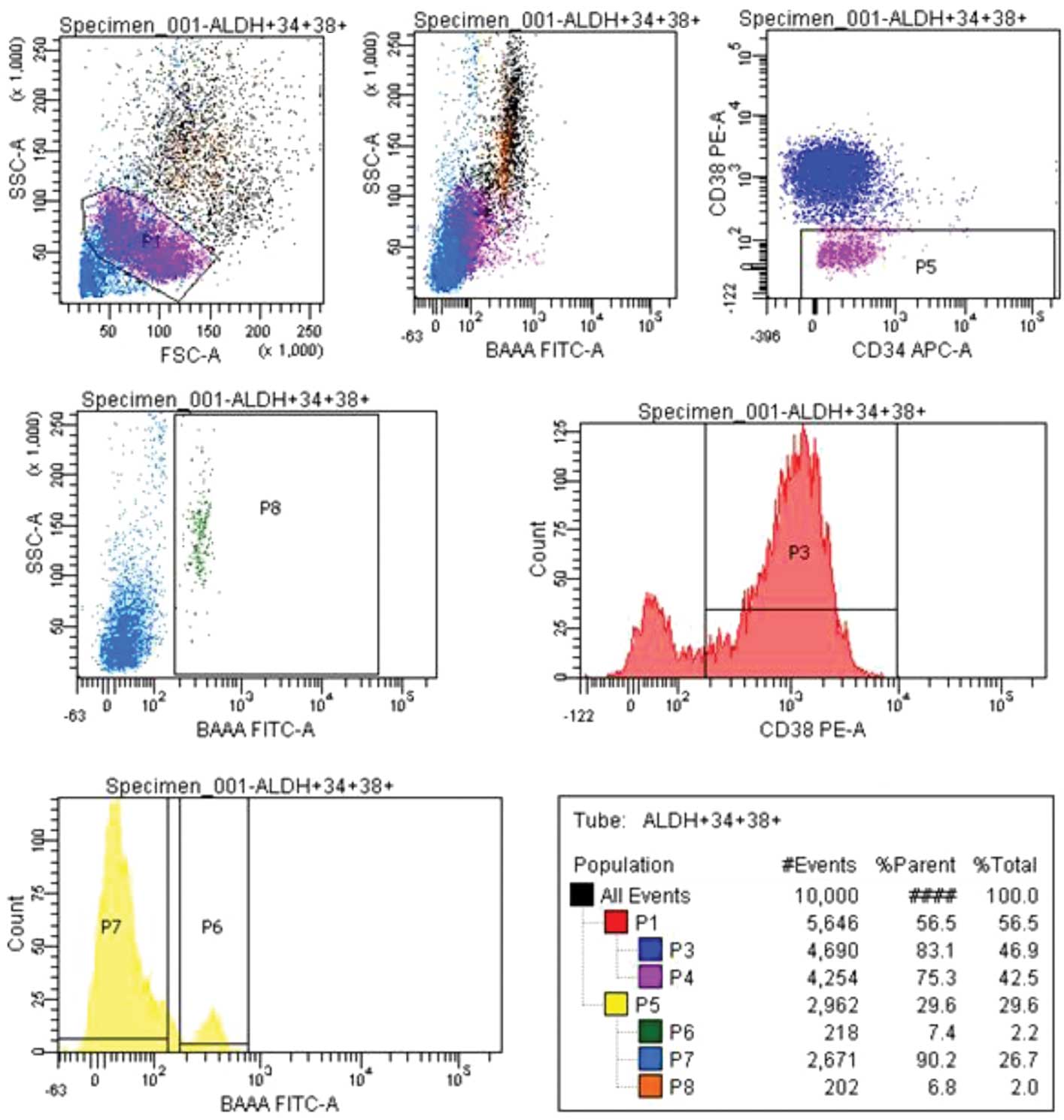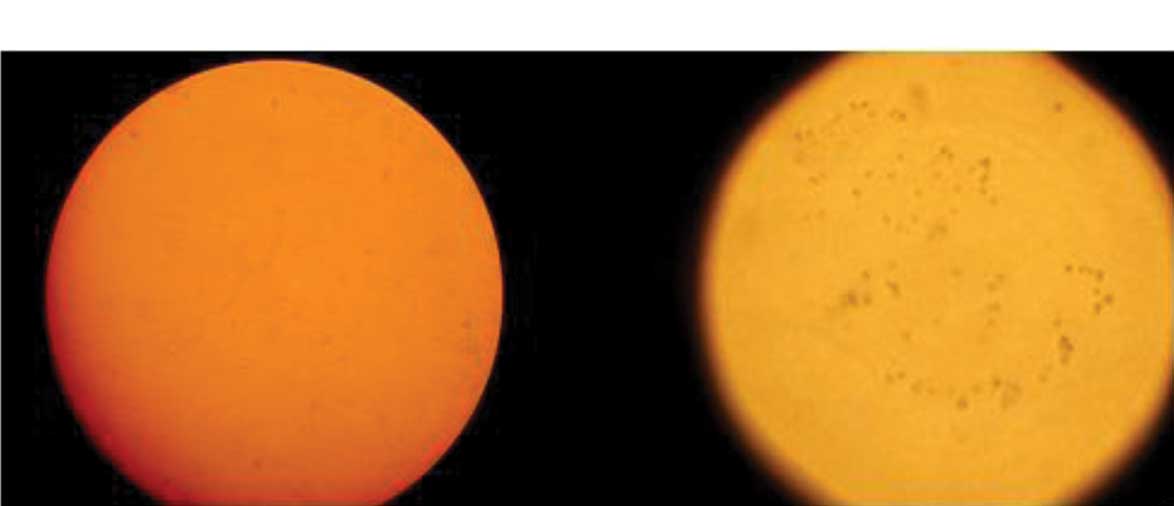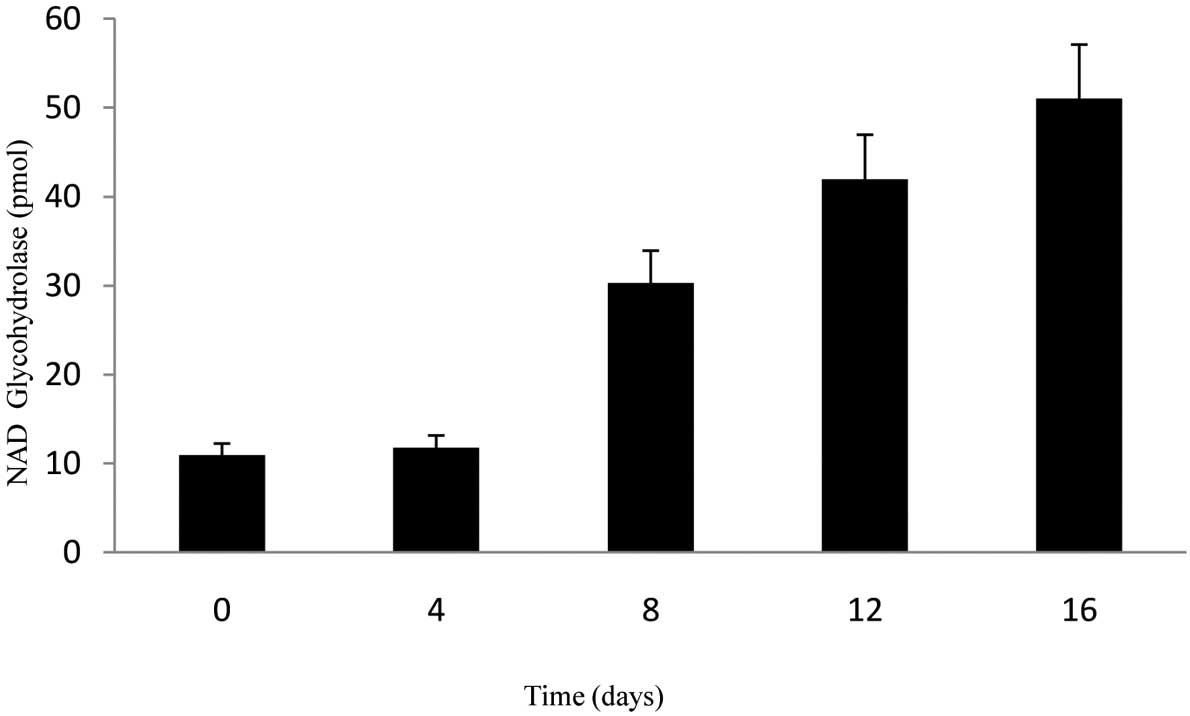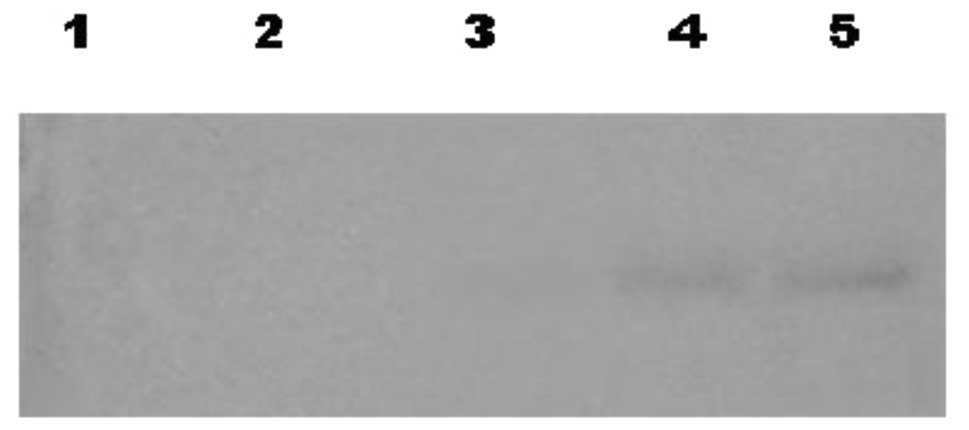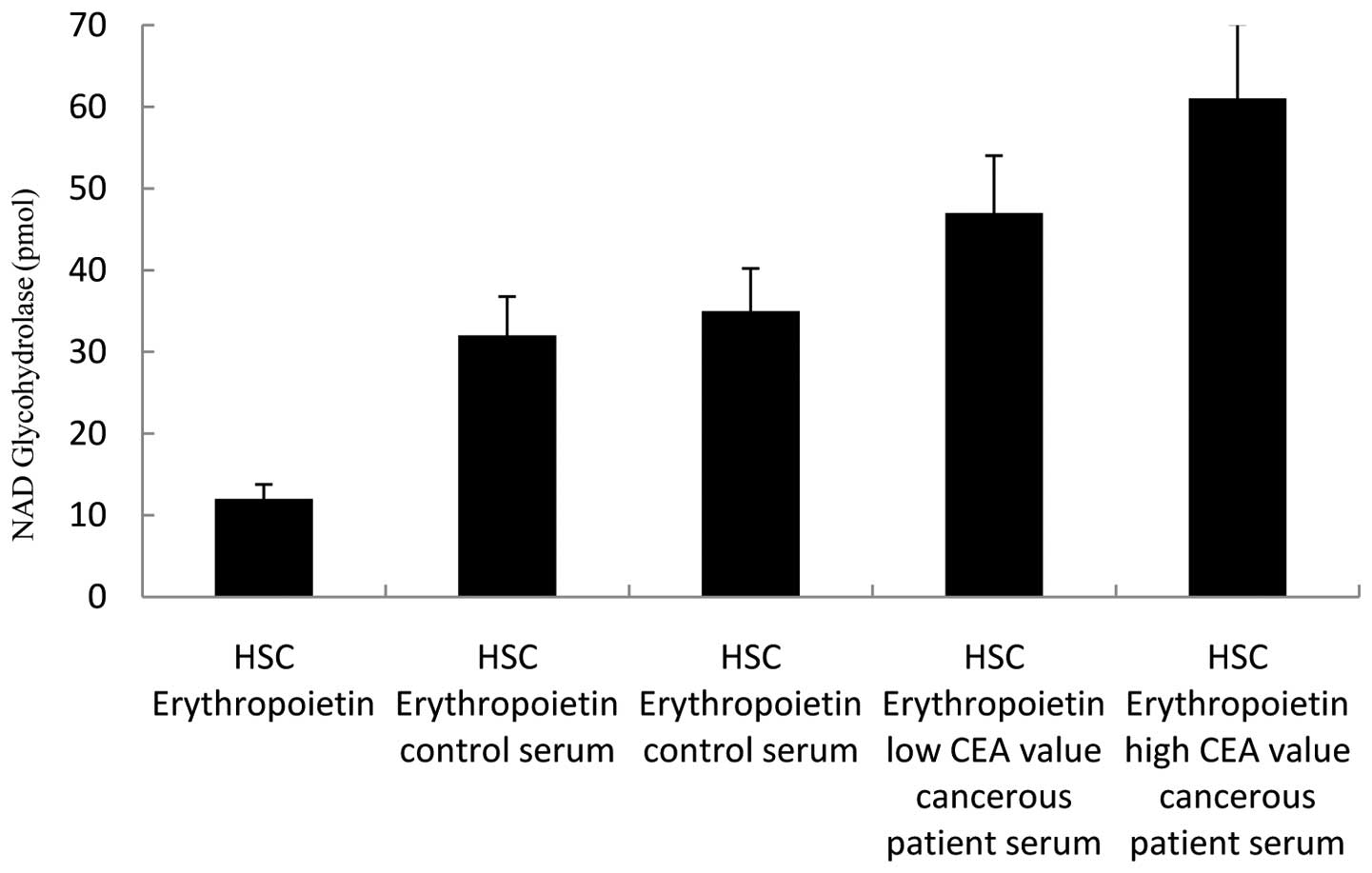|
1
|
Verfaillie CM, Pera MF and Lansdorp PM:
Stem cells: hype and reality. Hematology. 1:369–391. 2002.
View Article : Google Scholar
|
|
2
|
Mitchell KE, Weiss ML, Mitchell BM and
Martin P: Matrix cells from Wharton’s jelly from neurons and glia.
Stem cells. 21:50–60. 2003.
|
|
3
|
Czyz J, Wiese C, Rolletschek A, Blyszczuk
P, Cross M and Wobus AM: Potential of embryonic and adult stem
cells in vitro. Biol Chem. 384:1391–1409. 2003. View Article : Google Scholar : PubMed/NCBI
|
|
4
|
Malik P, Fisher TC, Barsky LW, Zeng L,
Izadi P, Hiti AL, Weinberg KI, Coates TD, Meiselman HJ and Kohn DB:
An in vitro model of human red blood cell production from
hematopoietic progenitor cells. Blood. 91:2664–2671.
1998.PubMed/NCBI
|
|
5
|
Bickenbach JR and Stem MM: Plasticity of
epidermal stem cell: survival in various environments. Stem Cell
Rev. 1:71–77. 2005. View Article : Google Scholar : PubMed/NCBI
|
|
6
|
Sato N, Sanjuan IM, Heke M, Naef F and
Brivaniou AH: Molecular signature of human embryonic stem cells and
its comporation with the mouse. Dev Biol. 260:404–413. 2003.
View Article : Google Scholar : PubMed/NCBI
|
|
7
|
Audet J, Miller CL, Rose-John S, Piret JM
and Eaves CJ: Distinct role of gp130 activation in promoting
self-renewal divisions by mitogenically stimulated murine
hematopoietic stem cells. Proc Natl Acad Sci USA. 98:1757–1762.
2001. View Article : Google Scholar : PubMed/NCBI
|
|
8
|
Forsberg EC, Prohaska SS, Katzman S,
Heffner GC, Stuart JM and Weissman IL: Differential expression of
novel potential regulators in hematopoietic stem cells. PLoS Genet.
1:281–294. 2005. View Article : Google Scholar
|
|
9
|
Venezia TA, Merchant AA, Ramos CA,
Whitehouse NL, Young AS, Shaw CA and Goodell MA: Molecular
signatures of proliferation and quiescence in hematopoietic stem
cells. PLoS Biol. 2:1640–1651. 2004. View Article : Google Scholar : PubMed/NCBI
|
|
10
|
Steidl U, Kronenwett R, Rohr UP, Fenk R,
Kliszewski S, Maercker C, Neubert P, Aivado M, Koch J, Modlich O,
et al: Gene expression profiling identifies significant differences
between the molecular phenotypes of bone marrow-derived and
circulating human CD34+ hematopoietic stem cells. Blood.
99:2037–44. 2002.PubMed/NCBI
|
|
11
|
Wognum WA, Eaves CA and Thomas ET:
Identification and isolation of hematopoietic stem cells. Arch Med
Res. 34:461–475. 2003. View Article : Google Scholar : PubMed/NCBI
|
|
12
|
Albeniz I, Demir Ö, Türker-Şener L,
Yalçıntepe L, Nurten R and Bermek E: Erythrocyte CD38 as a
prognostic marker in cancer. Hematology. 12:409–414. 2007.
View Article : Google Scholar : PubMed/NCBI
|
|
13
|
Funaro A, Reinis M, Trubiani O, Santi S,
Di Primio R and Malavasi F: CD38 functions are regulated through an
internalization step. J Immunol. 160:2238–2247. 1998.PubMed/NCBI
|
|
14
|
Mainou-Fowler T, Dignum HM, Proctor SJ and
Summerfield GP: The prognostic value of CD38 expression and its
quantification in B cell chronic lymphocytic leukemia (B-CLL). Leuk
Lymphoma. 45:455–462. 2004. View Article : Google Scholar : PubMed/NCBI
|
|
15
|
Matrai Z: CD38 as a prognostic marker in
CLL. Hematology. 10:39–46. 2005. View Article : Google Scholar : PubMed/NCBI
|
|
16
|
Akel S, Petrow-Sadowski C, Laughlin MJ and
Ruscett FW: Neutralization of autocrine transforming growth
factor-β in human cord blood
CD34+CD38−Lin− cell promotes stem
cell factor-mediated erythropoetin-independent early erythroid
progenitor development and reduces terminal differentiation. Stem
Cells. 21:557–567. 2003.
|
|
17
|
Kim H, Jacobson EL and Jacobson MK:
Synthesis and degradation of cyclic ADP-ribose by NAD
glycohydrolase. Science. 261:1330–1333. 1993. View Article : Google Scholar : PubMed/NCBI
|
|
18
|
Laemmli UK: Cleavage of structural
proteins during the assembly of the head of bacteriophage T4.
Nature. 227:680–685. 1970. View
Article : Google Scholar : PubMed/NCBI
|
|
19
|
Gershoni JM and Palade GE: Protein
blotting: Principles and applications. Anal Biochem. 131:1–15.
1983. View Article : Google Scholar : PubMed/NCBI
|
|
20
|
Storms RW, Green PD, Safford KM,
Niedzwiecki D, Cogle CR, Colvin OM, Chao NJ, Rice HE and Smith CA:
Distinct hematopoietic progenitor compartments are delineated by
the expression of aldehyde dehydrogenase and CD34. Blood.
106:95–102. 2005. View Article : Google Scholar : PubMed/NCBI
|
|
21
|
Hao QL, Smogorzewska EM, Barsky LW and
Crooks GM: In vitro identification of single CD34+CD38− cells with
both lymphoid and myeloid potential. Blood. 91:4145–4151. 1998.
|
|
22
|
Neildez-Nguyen TM, Wajcman H, Marden MC,
Bensidhoum M, Moncollin V, Giarratana MC, Kobari L, Thierry D and
Douay L: Human erythroid cells produced ex vivo at large scale
differentiate into red blood cells in vivo. Nature Biotechnology.
20:467–472. 2002. View Article : Google Scholar : PubMed/NCBI
|
|
23
|
Dorn I, Lazar-Karsten P, Boie S, Ribbat J,
Hartwig D, Driller B, Kirchner H and Schlenke P: In vitro
proliferation and differentiation of human CD34+ cells
from peripheral blood into mature red blood cells with two
different cell culture systems. Transplant Cell Eng. 48:1122–1132.
2008.PubMed/NCBI
|
|
24
|
Jacobson MK, Laurean DC, Strohm MS and
Jacobson EL: NAD glycohydrolase and the metabolism of cyclic
ADP-ribose. Biochimie. 77:341–344. 1995. View Article : Google Scholar : PubMed/NCBI
|
|
25
|
Zocchi E, Franco L, Guida L, Benatti U,
Bargellesi A, Malavasi F, Lee HC and De Flora A: A single protein
immunologically identified as CD38 displays NAD+
glycohydrolase, ADP-ribosylcyclase and ADP-ribose hydrolase
activities at the outer surface of erythrocytes. Biochem Biophys
Res Commun. 196:1459–1465. 1993.PubMed/NCBI
|
|
26
|
Albeniz I, Demir Ö, Nurten R and Bermek E:
NAD glycohydrolase activities and ADP-ribose uptake in erythrocytes
from normal subject and cancer patients. Bioscience Rep. 24:41–53.
2004. View Article : Google Scholar : PubMed/NCBI
|















